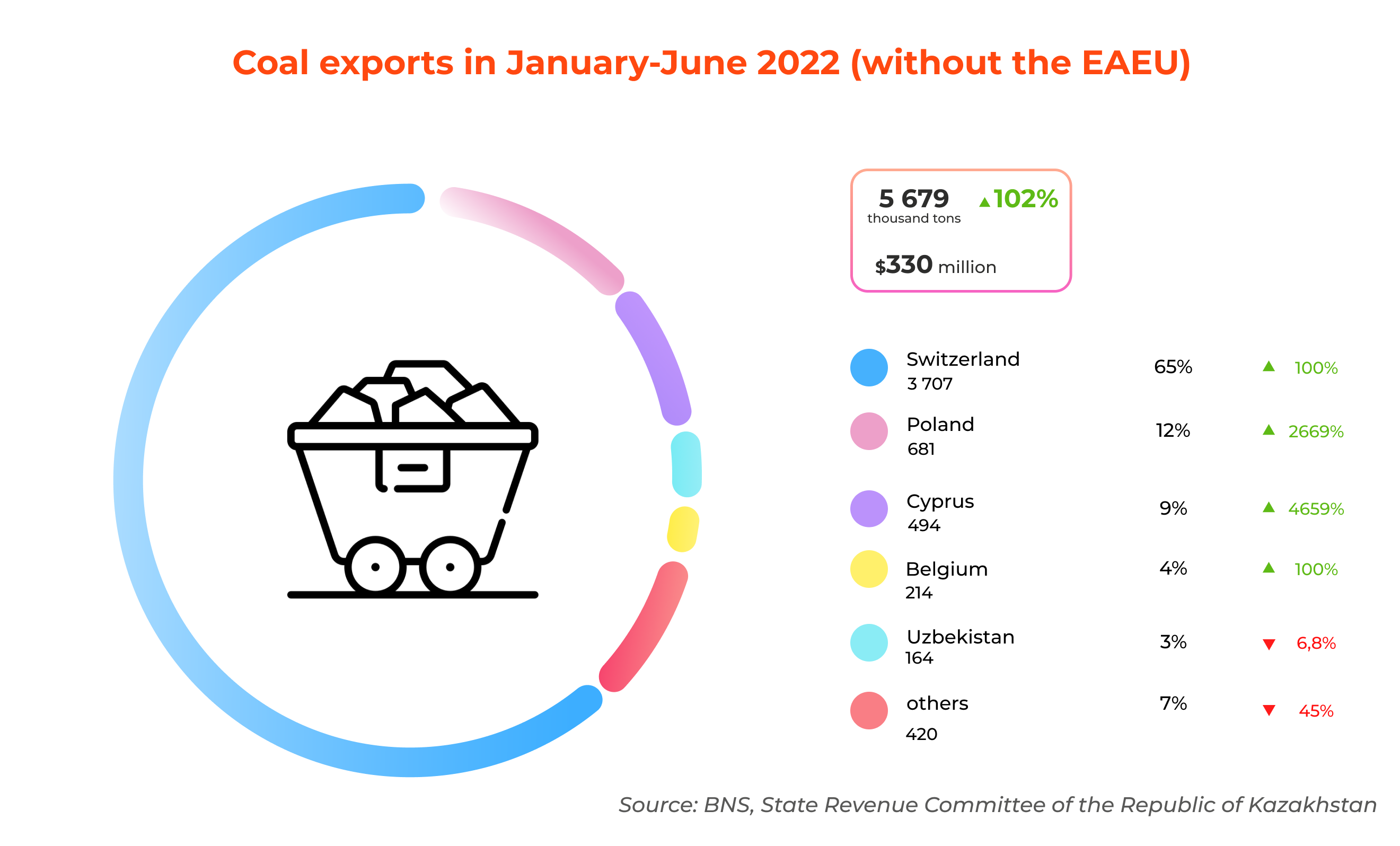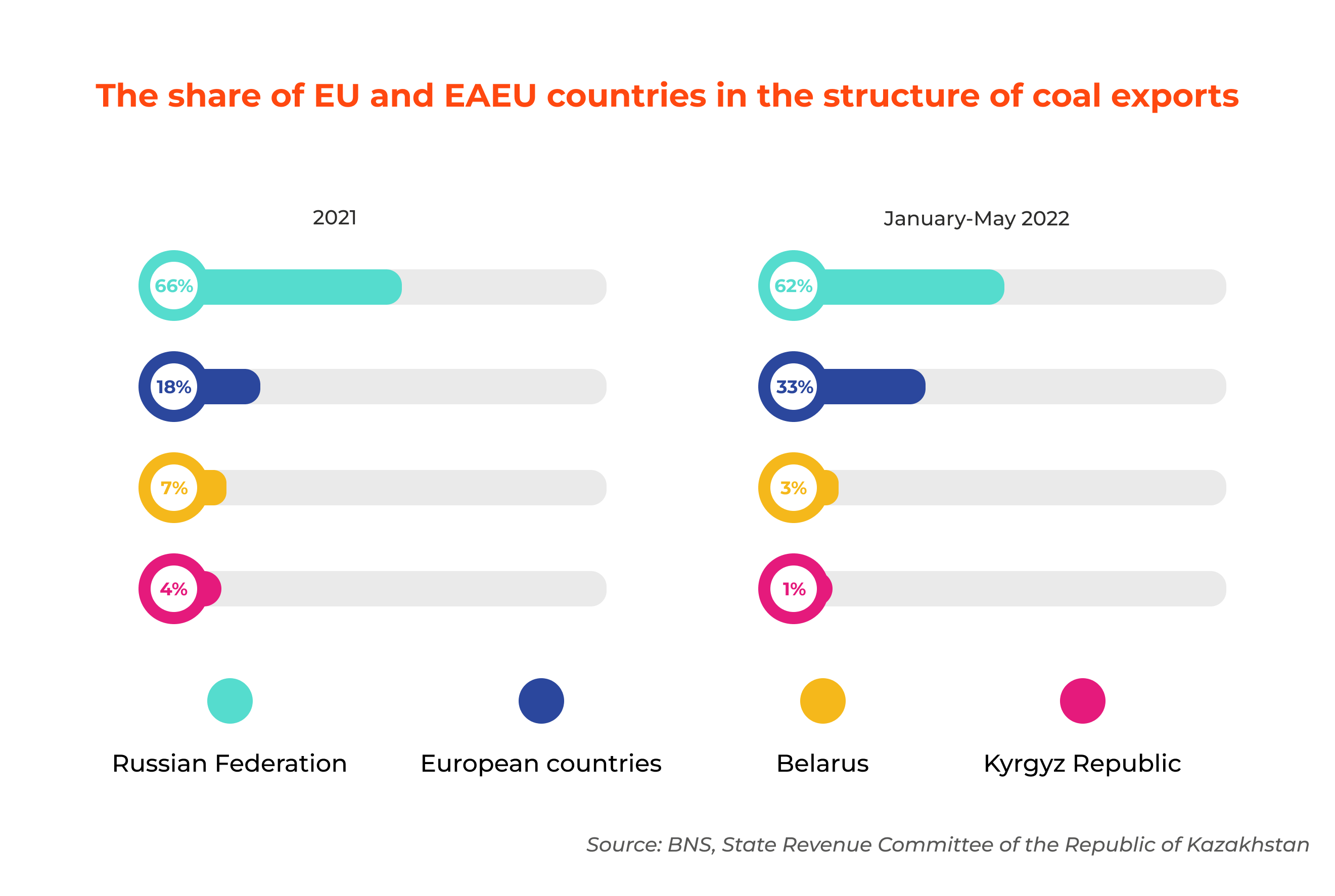According to the draft Order of the Ministry of Industry and Infrastructure Development of the Republic of Kazakhstan (MIID) “On some regulation of coal export issues” a temporary coal embargo by road from the territory of the Republic of Kazakhstan is provided for a period of 6 months. The ban is imposed due to the approaching start of the heating season and, as a result, the increasing demand for energy resources.
The MIID has developed a plan for the demand for coal products for municipal, household and public needs for 2022-2023 period, according to which the required volume is 9.6 million tons, of which 2.6 million tons are for households, and 7 million tons – for the public needs.
An increase in domestic demand with an increase in exports to other countries creates a temporary shortage in the coal market, which can provoke an increase in speculation and excessive demand from the population. In turn, this situation will lead to an increase in energy prices for the population. A temporary coil embargo by road is a non-tariff measure to stabilize the market.
Exports
In the first six months of 2022, the export of coal to the countries of the European Union has spiked by almost 2.5 times. During this period, 3.7 million tons were shipped to Switzerland (1.8 million tons in January-June 2021), 681 thousand tons to Poland (24.6 thousand tons), 494 thousand tons to Cyprus (10.4 thousand tons) and 214 thousand tons to Belgium (0 tons).

The increased demand for Kazakhstan coal appeared right after the imposition of European Union sanctions on the import of energy resources from the Russian Federation.
In the structure of coal exports in 2021, European countries accounted for about 18% of total exports, the EAEU countries – 77%, of which 66% were to Russia. In January-May 2022, Kazakhstan’s exports have already been reoriented: 33% were exported to European countries, 65% to the EAEU countries, including the Russian Federation – 62%.

Whether a temporary embargo on exports will be a sufficient measure to prevent a shortage of coal in the domestic market is open to question, since road transport accounts for a small part of exports and is directed to neighboring countries. Moreover, despite transportation costs, favorable conditions in foreign markets may encourage coal mining companies to prioritize exports over the domestic market.
[1] HS 2701 Coal; briquettes, pellets and similar solid fuels obtained from hard coal
 Аят Сураганов
Аят Сураганов
